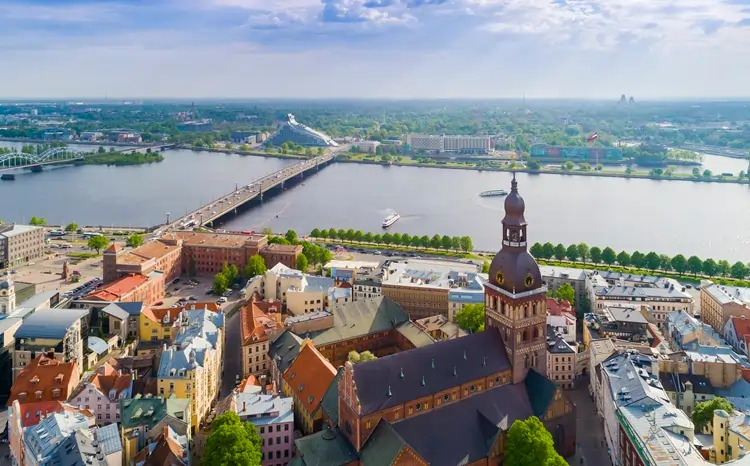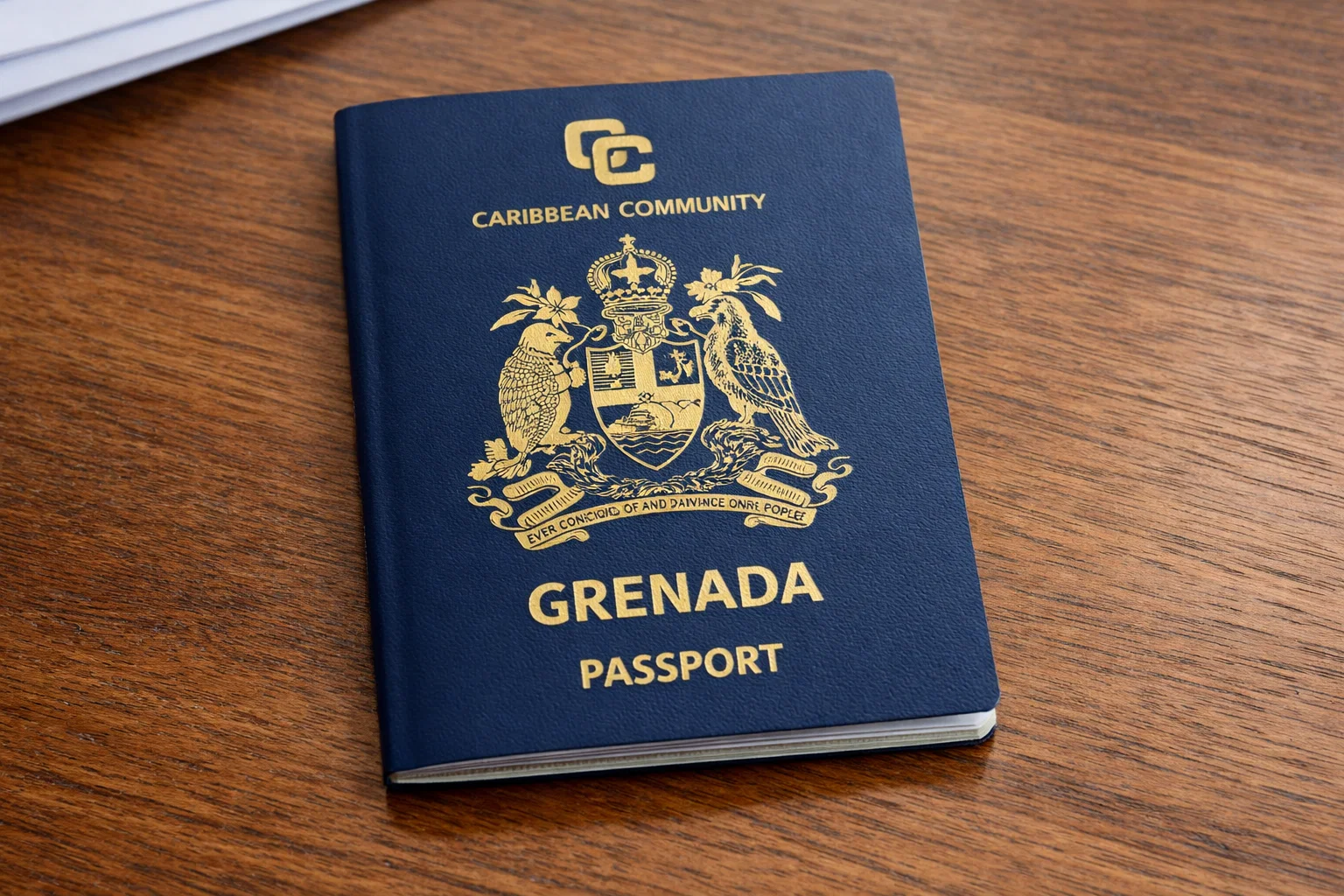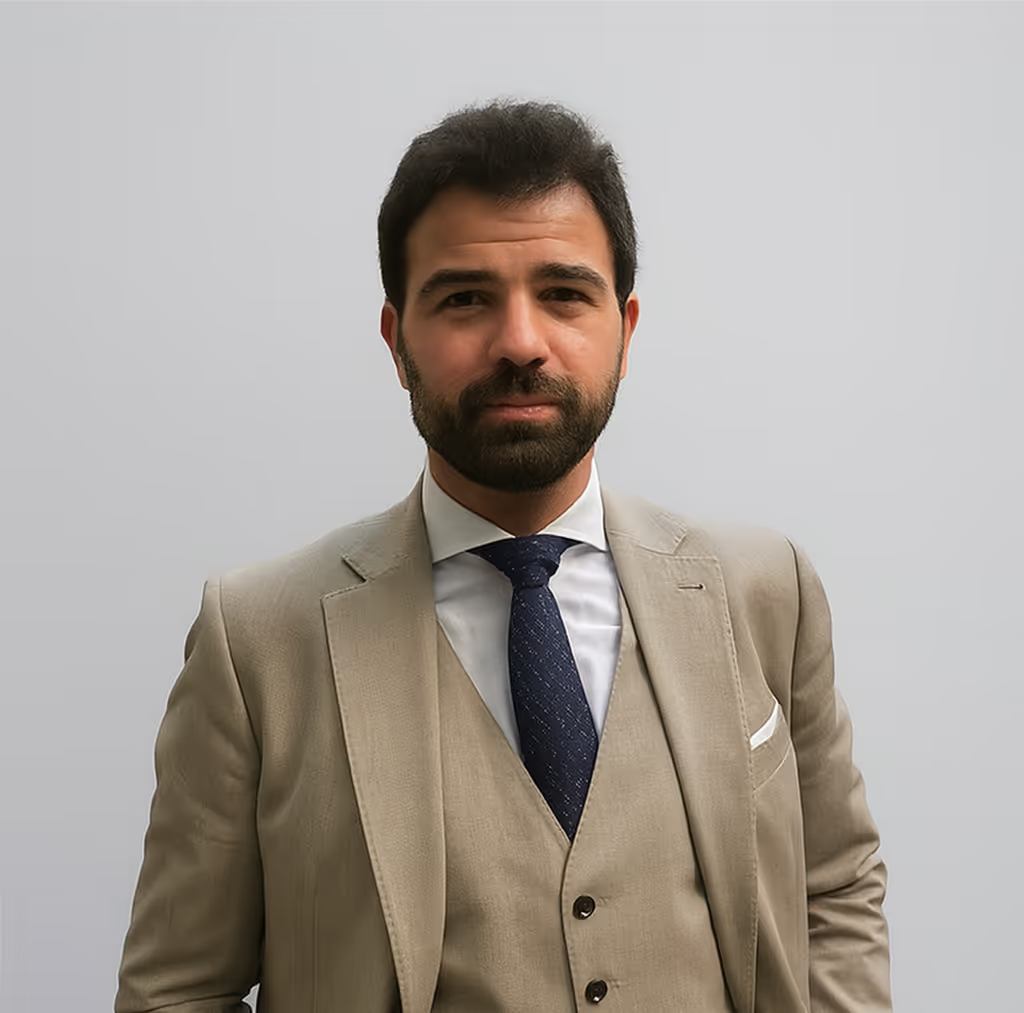In today’s globally connected world, more families and entrepreneurs are seeking to expand their horizons beyond the borders of their home country. Whether it's for enhanced mobility, security, wealth planning, or future opportunities, the appeal of obtaining European citizenship by investment continues to grow.
The benefits of acquiring a second passport in Europe include access to top-tier healthcare and education, as well as the right to live, work, and study in any EU member state.
While many countries around the world offer citizenship programs, only a select few in Europe grant citizenship through direct investment. Others offer a longer route through residence permit schemes, also known as Golden Visa programs, that may eventually lead to permanent residency or naturalisation.
This guide breaks down both approaches. It outlines the citizenship by investment options currently available in Europe and compares them with investment programs that provide a viable path to eventual EU citizenship.
We’ll help you understand the legal landscape, explore each European country's requirements, and identify which route fits your needs, whether you’re a business owner, retiree, or high-net-worth individual.
Most importantly, we’ll help you evaluate the strategic benefits of acquiring European citizenship through financial contribution, highlighting the importance of choosing the right host country, understanding your target country’s legal pathway, and meeting the necessary minimum investment thresholds.
In a time of increased global uncertainty, investing in a European passport could be one of the most empowering decisions for you and your family’s future.
What Is Citizenship by Investment?

Citizenship by Investment (CBI) refers to the process by which a European country or other sovereign state grants citizenship to an individual (and often their family) in exchange for a substantial investment. This may involve contributing to a national development fund, purchasing real estate property, or investing in government bonds or a venture capital fund.
Unlike traditional immigration, where naturalisation comes only after years of residence, integration, and paperwork, citizenship by investment programs are designed for foreign investors who are willing to make financial commitments in return for fast-tracked access to EU citizenship or other benefits.
However, not all programs are created equal. While a handful of countries (like Austria and Turkey) offer direct citizenship through investment, most EU countries offer Golden Visa programs, also called residence by investment, which can eventually lead to permanent residence and naturalisation over time.
Key Differences: Citizenship by Investment vs. Golden Visa Programs
Below is a side-by-side comparison to clarify the distinction between direct citizenship programs and Golden Visa residency programs:
| Feature | Citizenship by Investment (CBI) | Golden Visa / Residence by Investment (RBI) |
|---|---|---|
| Grants immediate citizenship? | ✅ Yes (in select EU and non-EU countries) | ❌ No — residency comes first, then citizenship |
| Leads to EU passport? | ✅ Yes, directly or in short time | ✅ Yes, but after 5–10 years and conditions |
| Residency requirement | ❌ Often none | ✅ Typically required (may vary by country) |
| Examples of countries offering | Austria, Turkey, North Macedonia | Portugal, Greece, Spain, Italy, Hungary |
| Minimum investment required | Often higher (€500,000+ or discretionary) | Lower thresholds (€250,000–€500,000 common) |
In essence, if you’re looking to obtain European citizenship rapidly and are ready to make a significant financial contribution, direct citizenship by investment may suit your goals.
On the other hand, if you're seeking legal residency first with a path to EU citizenship, a Golden Visa offers flexibility and gradual integration.
Still Have Questions About European Citizenship or Residency?
Our team at Movingto is here to help. We offer personalized guidance, vetted legal support, and end-to-end management to make your investment journey smooth, compliant, and stress-free. From eligibility checks to document prep, we handle the details so you can focus on your future.
Talk to an Expert TodayThe EU Legal Landscape: Why Citizenship by Investment Is So Limited
Over the last decade, the European Union has increasingly cracked down on citizenship by investment programs that offer passports without meaningful ties to the host country.
These so-called “Golden Passport” schemes have raised alarms over security risks, corruption, and misuse of EU citizenship, which grants access to the entire Schengen Area, as well as full rights in all EU member states.
As a result, most European countries have abandoned or redesigned their citizenship programs in favour of residence permit-based systems that follow stricter compliance, require a clean criminal record, and include physical presence or cultural integration.
While countries like Portugal and Greece continue to offer Golden Visa programs (note: Spain's Golden Visa ended in April 2025), these are not direct routes to EU passports. They provide legal residency in exchange for a real estate investment, venture capital fund, or similar substantial investment but require years of residency and integration before one can acquire citizenship.
In contrast, only Austria still offers a rare and discretionary citizenship by investment pathway under Article 10(6) of its citizenship law.
However, this is not an ordinary investment program; applicants must demonstrate exceptional services or provide an “extraordinary benefit to the Republic,” such as innovation, job creation, or a significant economic contribution.
There is no public pricing, there are no guarantees, and only a small number of applicants are successful.
📣 What Happened to Malta and Cyprus?
Both Malta and Cyprus have shut down their citizenship by investment programs under mounting pressure from the European Union. The EU cited serious concerns over security, money laundering, and lack of proper due diligence.
Malta now requires applicants to establish residency and wait at least a year before applying for citizenship, turning its former fast-track program into a more traditional naturalisation route.
Cyprus, meanwhile, permanently closed its program in late 2020 following a formal infringement procedure and damaging reports of political abuse tied to its passport sales.
Top European Citizenship by Investment Programs
Before exploring individual programs, it’s important to understand the two main pathways available to foreign investors: Citizenship by Investment (CBI) and Golden Visa/Residency by Investment (RBI).
While only a few countries offer direct citizenship routes, most EU countries rely on residence-by-investment programs that can lead to European citizenship over time, typically after meeting long-term residency, language, and integration requirements.
🇵🇹 Portugal – The Gateway to Europe’s Most Popular Citizenship Path
Portugal’s Golden Visa remains one of the most strategic investment programs in Europe, especially for those seeking to obtain European citizenship ultimately. Although Portugal no longer offers direct citizenship by investment, it provides a clear, structured path from residence to citizenship with relatively low stay requirements, a rarity among EU member states.
Foreign investors can apply for a residence permit through qualifying investments (such as venture capital funds, scientific research, or job creation). After five years of legal residency, without needing to live in Portugal full time, investors may become eligible to apply for Portuguese citizenship, assuming they meet basic requirements like a clean criminal record, language proficiency, and integration.
Those granted citizenship gain access to an EU passport, which allows visa-free travel across Europe’s Schengen Area and beyond. Portugal also allows dual citizenship, making it a flexible choice for those who don’t want to renounce their current nationality.
Key Benefits
- Access to a strong EU passport after five years of legal residency
- Low physical stay requirement (just 7 days/year)
- Multiple investment options, including real estate investment and fund subscriptions
- Family reunification (spouses, children, dependent parents)
- The IFICI regime (which replaced NHR in January 2024) provides strong healthcare, education, and tax benefits.
Investment Routes
- €500,000 in a regulated Portuguese investment fund
- €250,000 in cultural/artistic support
- €500,000 to launch or capitalise oncapitalise a local company that creates five or more jobs.
🇬🇷 Greece – A Flexible Route to EU Citizenship Through Real Estate
Greece has rapidly climbed the ranks to become one of Europe’s most appealing residence-by-investment destinations, especially since reforms to its Golden Visa program made it more transparent and accessible. While it doesn’t offer citizenship by investment outright, its pathway to permanent residence and eventual EU citizenship is both attractive and achievable for long-term investors.
To qualify, non-EU citizens must invest in real estate property worth at least €250,000 (in most areas) or €500,000 in premium zones such as Athens and Santorini. Once granted a residence permit, investors and their families can live in Greece, travel visa-free throughout the Schengen Area, and benefit from Greece’s improving economy, lifestyle, and international connectivity.
After 7 years of legal residency, applicants may become eligible to apply for Greek citizenship, provided they meet basic criteria such as sufficient knowledge of the Greek language and cultural heritage, along with a clean criminal record.
Key Benefits
- Affordable real estate entry point (starting at €250,000)
- Fast processing (2–3 months in most cases)
- No physical presence requirement to maintain residency
- Citizenship eligibility after 7 years
- Includes family members (spouse, children, sometimes dependent parents)
Investment Routes
- Residential or commercial real estate investment
- 10-year lease for hotel or tourism accommodation
- Purchase of Greek government bonds or shares in local companies (less common)
🇪🇸 Spain – Lifestyle, Location, and a Clear Path to Citizenship
Spain’s Golden Visa program offers a gateway to life in one of Europe’s most vibrant nations, from the bustling streets of Barcelona to the beaches of Costa del Sol. While Spain does not grant direct citizenship by investment, it does offer an efficient residence by investment pathway that may lead to permanent residency and eventual Spanish citizenship.
To qualify, foreign investors must make a minimum real estate investment of €500,000 or consider other investment options like government bonds, business development, or capital transfer. The initial residence permit grants legal residency for up to 3 years (renewable), with no requirement to live in Spain full time.
After 10 years of legal residency, investors can apply to acquire citizenship, assuming they have maintained legal status, integrated into Spanish society, and passed the necessary exams.
Key Benefits
- Generous visa-free access within Europe and globally
- No stay requirement to maintain residency
- Full family inclusion: spouse, children, and dependent parents
- Multiple eligible investments: real estate, business, or capital contribution
- This program offers a long-term pathway to dual citizenship, depending on the laws of the applicant's home country.
Investment Routes
- €500,000 in Spanish real estate property
- €1 million in government bonds
- €1 million in Spanish company shares or bank deposits
🇨🇾 Cyprus – From Fast Citizenship to Strategic Residency
Cyprus was once one of the most popular European citizenship investment destinations, but its original citizenship program was officially terminated in 2020 following EU scrutiny and allegations of abuse.
Today, Cyprus focuses on residence by investment, offering a compelling route to permanent residency and, eventually, EU citizenship, especially attractive for third-country nationals.
The current Cyprus Permanent Residence Program requires a minimum investment of €300,000 in new real estate, company shares, or a venture capital fund. The process is relatively fast, with approvals issued in as little as 2 months, and provides access to Cyprus’s strong legal, educational, and tax infrastructure.
Citizenship through naturalisation is possible after 5–7 years of legal residency, depending on continuous presence and integration (including knowledge of the local language, cultural heritage, and a clean record). While direct citizenship is no longer an option, Cyprus remains a strategic foothold in the European Union.
Key Benefits
- Strategic location at the crossroads of Europe, Asia, and the Middle East
- Attractive tax regime for foreign investors and businesses
- Quick residency permit process (2–3 months)
- No physical presence required to maintain status
- Citizenship eligibility is available after 5–7 years of residency.
- includes spouses, children, and dependent parents.
Investment Routes
- €300,000 in new residential or commercial real estate property
- Investment in local companies with five Cypriot employees
- Participation in a venture capital fund or collective investment scheme
🇭🇺 Hungary – A Newcomer Reimagining Investor Residency
Hungary recently launched its revamped Guest Investor Program (GIP) in 2024, introducing a modern pathway for non-EU citizens to obtain legal residency and eventually Hungarian citizenship through strategic investment.
While it’s not a direct citizenship by investment program, it positions Hungary as one of the most accessible and cost-effective European Union entry points today.
To qualify, investors must make a minimum investment of €250,000 into a Hungarian real estate fund, a €500,000 real estate purchase, or a €1 million donation to a national development fund supporting cultural heritage projects.
The initial residence permit is valid for 10 years, which is longer than the duration of most Golden Visa programs.
Citizenship may be available after 8 years of continuous residency, assuming sufficient knowledge of the Hungarian language, a clean criminal record, and integration.
Key Benefits
- Low entry investment threshold: from €250,000
- 10-year renewable residence permit, one of the longest in Europe
- Fast-track processing for eligible investors
- Option to bring spouse and minor children
- Citizenship can be obtained 8 years later through the naturalisation process.
Investment Routes
- €250,000 in a government-approved real estate fund
- €500,000 in direct Hungarian real estate investment
- €1 million contribution to a government fund for heritage development
🇱🇻 Latvia – Quietly Strategic, Efficient, and Affordable

Latvia may not top the headlines, but its residence by investment program stands out for its low minimum investment, fast processing, and straightforward structure.
While Latvia does not offer direct citizenship by investment, its Golden Visa framework is among the most cost-effective in Europe, and it can lead to EU citizenship over time through naturalisation.
Investors can gain a residence permit by:
- Investing €250,000 in Latvian real estate property,
- Depositing €280,000 in a Latvian bank, or
- Investing €50,000 into a local business (plus taxes).
The program includes visa-free access to the Schengen Area, and citizenship eligibility arises after 10 years of residency, including 5 years as a permanent resident.
The process also requires a clean criminal record and basic Latvian language proficiency for citizenship.
Key Benefits
- One of the lowest minimum real estate investment thresholds in the EU
- Fast approval timeline (as little as 30–60 days)
- Option to invest in business or banking
- Path to EU citizenship via long-term residency
- Includes spouse and minor children
Investment Routes
- €250,000 in qualifying real estate property
- €280,000 deposit in a Latvian bank for 5 years
- €50,000 capital in a local business + €10,000 government fee
🇱🇺 Luxembourg – Business-Friendly Path to EU Residency (and Eventually Citizenship)

Luxembourg doesn’t offer direct citizenship by investment, but it provides a highly attractive residence by investment (RBI) framework for third-country nationals seeking long-term access to the European Union.
Known for its financial stability, business-friendliness, and high standard of living, Luxembourg’s program is ideal for high-net-worth individuals with entrepreneurial interests.
To qualify, applicants must make a substantial investment in the country through one of the following routes:
- Invest €500,000 in an existing Luxembourg company
- Start a new business with a capital contribution of €500,000 and 5+ job commitments
- Deposit €20 million in a Luxembourg financial institution for 5 years
- Invest €3 million in a venture capital fund or similar structure
After 5 years of continuous legal residency, applicants may apply for Luxembourgish citizenship if they demonstrate sufficient knowledge of the language, integration into Luxembourgish society, and a clean criminal record.
Key Benefits
- Excellent for entrepreneurs, business owners, and startup investors
- Access to one of the EU’s strongest economies and banking sectors
- Includes spouse and dependent children
- Potential for dual citizenship after naturalization
- Short path to permanent residency
Investment Routes
- Business creation or expansion
- Bank deposit in a regulated Luxembourg institution
- Investment in approved funds or venture capital fund vehicles
- Strategic economic development contributions
🇨🇭 Switzerland – Prestigious Residency, Exclusive Access, and Elite Living

Switzerland doesn’t offer citizenship by investment directly, but it does provide an elite residence program designed for financially independent individuals.
While not an EU country, Switzerland is part of Europe’s Schengen Area, offering visa-free access across the continent and one of the highest standards of living worldwide.
Program Options
- Lump-Sum Taxation Program (Swiss Forfait Fiscal):
Available to non-EU citizens who agree to pay a minimum annual tax based on their living expenses (not income or assets), usually starting at CHF 150,000–CHF 1,000,000+ depending on canton. - Business Investor Route:
Alternatively, applicants can establish a company that provides economic benefit to a Swiss canton and employ local staff.
After 10 years of continuous residency, applicants can apply for Swiss citizenship through naturalisation if they demonstrate integration, language proficiency, and a clean legal record.
Key Benefits
- Reside in one of Europe’s most stable and secure nations
- Low taxation on global income for qualified residents
- High prestige, privacy, and economic opportunity
- Path to dual citizenship (allowed in most cases)
- Access to excellent healthcare, banking, and education systems
- Includes family (spouse and children under 18)
Requirements Summary
- No employment in Switzerland (for lump-sum route)
- Substantial wealth and ability to self-fund lifestyle
- Clean criminal record and compliance with tax laws
- Health insurance and proof of accommodation
- Long-term residence needed before citizenship eligibility
🇦🇹 Austria – Rare Citizenship by Exceptional Contribution

Austria remains the only EU country that legally offers direct citizenship by investment, although the route is highly selective, discretionary, and not published as a formal “program.”
Under Article 10(6) of the Austrian Citizenship Act, citizenship may be granted without prior residence if the applicant provides exceptional services or substantial economic benefit to the Republic. This often involves a direct investment of €2–10 million+ into critical sectors like innovation, science, business, or the arts.
The process is complex, confidential, and typically requires expert guidance and high-level governmental approval. Dual citizenship is not typically allowed unless specifically exempted by the Austrian authorities.
Key Benefits
- One of the most powerful European passports globally
- Immediate EU citizenship without prior residency
- Full access to visa-free travel in over 190+ countries
- Elite prestige, privacy, and discretion
- Pathway is legal and constitutional under Austrian law
Requirements Summary
- €2–10M+ direct investment or significant economic contribution
- Approval by the Austrian government (not automatic or guaranteed)
- Must show a clean criminal record and high ethical standing
- No published residency requirement
- This requirement often excludes individuals with dual nationality unless a special exemption is granted.
Austria’s route is best suited to ultra-high-net-worth individuals seeking a second passport from a top-tier EU country through a legal but discretionary process.
🇹🇷 Turkey – Fast-Track Citizenship via Property or Capital

Turkey is not an EU member state, but it plays a significant role in the European investment migration space. Its Citizenship by Investment Program is one of the most affordable and efficient in the world.
Applicants can acquire Turkish citizenship by:
- Purchasing real estate worth $400,000+,
- Making a $500,000 bank deposit, or
- Investing in government bonds or a venture capital fund.
The process takes just 3 to 6 months, and successful applicants receive a Turkish passport, which grants visa-free access to over 110 countries, including Japan, Singapore, and most of the Caribbean.
Despite Turkey's non-EU status, its strategic visa arrangements allow it to serve as a bridge country in broader global mobility strategies.
Key Benefits
- Fastest European-region passport (in 3–6 months)
- Affordable entry point compared to EU Golden Visa programs
- No residency or language requirement
- Allows dual citizenship
- Family members who are included are the spouse and children under 18 years of age.
Investment Routes
- $400,000+ real estate property (residential or commercial)
- $500,000 deposit into a Turkish bank for 3 years
- $500,000 investment in government bonds or fund shares
- Establishing a business that creates local jobs
Turkey’s program is ideal for investors seeking speed, family inclusion, and flexibility, with the option to later pursue EU citizenship through other pathways.
Benefits of Obtaining European Citizenship by Investment
For high-net-worth individuals and globally minded families, securing European citizenship or residency through investment isn’t just a luxury; it’s a strategic move. From expanded mobility to legacy planning, the advantages are vast and far-reaching.
Here’s why more foreign investors are looking toward EU countries as their second home:
With the right strategy and expert guidance, investing in Europe can unlock opportunities that last for generations.
How to Choose the Right Path Based on Your Goals
When exploring European citizenship or residency by investment, the most suitable option depends on individual circumstances, priorities, and future objectives.
Below are the key factors investors should evaluate when selecting the right program:
1️⃣ Speed to Citizenship
Programs differ in how quickly they lead to citizenship. Some offer direct citizenship via discretionary routes, while others require several years of legal residency before naturalisation.
2️⃣ Family Inclusion
Many programs allow the inclusion of spouses, children, and sometimes dependent parents. It's important to check eligibility criteria and additional investment requirements for dependants.
3️⃣ Preferred Investment Type
Applicants can choose between real estate investment, venture capital funds, government bonds, or direct contributions. Selecting a route that aligns with financial strategy and risk appetite is essential.
4️⃣ Lifestyle & Relocation Flexibility
Some countries require full-time relocation, while others impose minimal or no physical presence requirements.
This makes certain programs more suitable for investors who intend to reside elsewhere.
5️⃣ Access to Education & Healthcare
Residency or citizenship in the EU can provide access to quality public services, including healthcare and education.
Some countries offer better infrastructure and subsidies than others.
6️⃣ Business & Tax environments
Tax frameworks and business-friendly policies vary across Europe. Programs with favorable tax regimes (such as Portugal's IFICI, which replaced the non-habitual tax regime) or simplified business routes may appeal to entrepreneurs or wealth planners.
7️⃣ Global Mobility
Passport and visa privileges differ by country. Some offer broader visa-free travel or better mobility within and beyond Europe.
8️⃣ Legal & Language Requirements
Naturalisation in most EU countries includes requirements such as language proficiency, cultural knowledge, and a clean criminal record. Understanding the long-term obligations is critical.
9️⃣ Budget & Financial Thresholds
Minimum investment levels vary widely. Applicants should consider total financial commitment, including government fees, legal costs, and required contributions.
Evaluating the right program begins with understanding personal priorities, whether it's timeline, mobility, tax optimisation, or family security.
With many options available in Europe, choosing the right investment path that matches your long-term goals makes the application process easier and helps you get more value from the citizenship or residency you gain.
Application Process: What to Expect
While the exact process may vary slightly between countries, most European citizenship or residency by investment programs follow a structured multi-step timeline.
Applicants should prepare thoroughly and work with qualified professionals to ensure compliance and success.
🔢 Step-by-Step Overview
- Document Preparation
Gather essential documents, including valid passports, birth certificates, proof of legal income, a clean criminal record, marriage/family certificates (if applicable), and verified proof of funds. - Appoint a legal representative
Work with licensed legal and immigration professionals who specialise in citizenship-related investment programs. They will assist in document review, compliance, translation, and submission. - Source of Funds Validation
Most programs require clear documentation of how the funds were earned. This includes bank statements, business earnings, investment portfolios, or inheritance records. Transparency is crucial. - Due Diligence Checks
Governments conduct extensive background checks to verify the applicant’s integrity, financial history, and absence of legal issues. This step determines overall application eligibility. - Investment Transfer
Once approved in principle, applicants must proceed with the agreed investment. This may include real estate investment, contributions to a government fund, or transfers to a venture capital fund. - Residency or Citizenship Approval
After successful due diligence and investment confirmation, the applicant is granted either a residence permit or direct citizenship, depending on the program. - Passport Issuance (If Applicable)
In the case of citizenship, the final step involves formal naturalisation and receiving a European passport. For residency, applicants receive renewable permits valid for several years.
How to Avoid Delays or Rejection
- ✅ Ensure all documents are current, translated, and properly apostilled
- ✅ Submit police clearance certificates issued within the last 90 days
- ✅ Choose fully compliant and government-approved investment funds
- ✅ Clarify the origin of funds with documented, traceable proof
- ✅ Use authorized legal representatives familiar with the specific program
- ✅ Maintain consistency in application data across all platforms
⚠️ Risks, Challenges, and Common Mistakes
While citizenship by investment and residency programs offer powerful advantages, they also come with legal, financial, and procedural complexities.
Careful planning is essential to avoid delays, rejections, or long-term setbacks.
Common Pitfalls to Avoid
Proper planning and up-to-date guidance are essential when pursuing European citizenship or residency through investment.
By understanding the challenges early, working with qualified professionals, and selecting a program that matches your financial and personal goals, investors can avoid costly mistakes and move forward with confidence.
Final Thoughts: Why Choose Movingto for Your European Relocation
Having expert support is crucial when navigating something as complex as European residency or citizenship through investment. At Movingto, we combine legal excellence, cutting-edge technology, and personalised care to deliver results every time.
With over 2,500 successful approvals, a 100% success rate for visa applications, and glowing reviews from satisfied families and professionals, we’ve built a reputation as Europe’s trusted immigration partner.
We go beyond standard service:
- Licensed Immigration Lawyers In-House: Portugal-licensed lawyers handle your application in-house, eliminating any outsourcing and ensuring no surprises.
- Proprietary Golden Visa Funds Platform: Our curated platform offers access to the top 60 Portugal Golden Visa funds, carefully vetted based on performance, compliance, and cost.
- Real-Time Case Management: Stay informed with seamless online tracking, multi-channel support, and personal move coordination from start to finish.
- International Tax & Relocation Advisory: We advise not just on visas but also on IFICI tax regimes (formerly NHR), banking, insurance and property, ensuring that your move is fully optimised.
- Boutique, Family-Run Approach: Founded by global nomads ourselves, we treat every client like family, meaning proactive communication, thorough follow-up, and attention to detail at every step.
Still Have Questions About European Citizenship or Residency?
Our team at Movingto is here to help. We offer personalized guidance, vetted legal support, and end-to-end management to make your investment journey smooth, compliant, and stress-free. From eligibility checks to document prep, we handle the details so you can focus on your future.
Talk to an Expert Today Portugal
Portugal
 Spain
Spain Italy
Italy Greece
Greece Grenada Citizenship by Investment
Grenada Citizenship by Investment







.svg)
